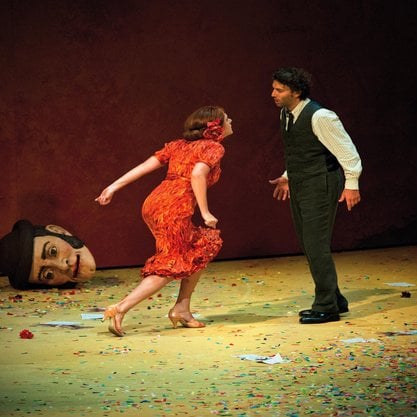Article
Teatro da Experiência By Townsend, Sarah J.
Article
Teatro da Experiência was a 275-seat theater housed in the Clube dos Artistas Modernos, a controversial club for ‘modern artists’ in São Paulo (Brazil) that served as a site of intense intellectual and political activity from November 1932 to December 1933. Directed by the architect and multimedia artist Flávio de Carvalho, it played an important (if often overlooked) role as one of only a handful of theater projects linked to the movement known as Brazilian modernismo. In November 1932, only days after opening its doors, the theater was forced to shut down when police interrupted a performance of Bailado do Deus Morto (Dance of the Dead God), a ritualistic performance piece written by Carvalho and enacted by an almost entirely black cast. The closure of Teatro da Experiência was a sign of the increasingly repressive atmosphere that had begun to develop under the soon-to-be dictator Getúlio Vargas, and it spelled the end of efforts to stage experimental theater in Brazil for a decade.
